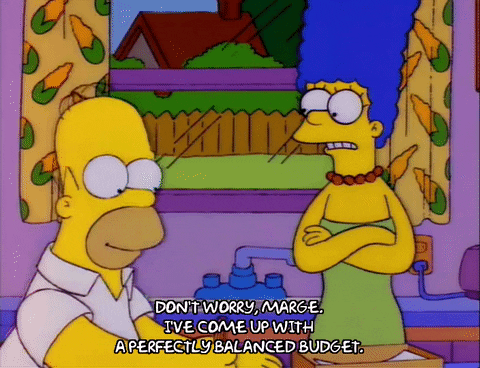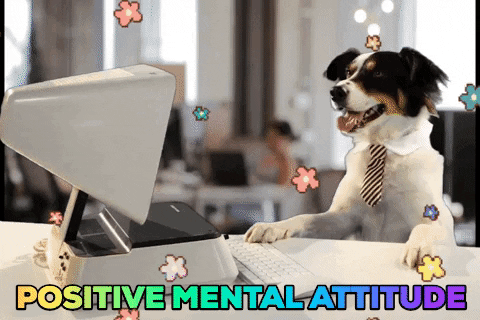How to cope if you've lost your job
Our jobs and careers often help us feel more stable and secure, so they may be linked to our sense of who we are. That’s why losing a job can really affect our self-esteem.
Although it may seem like things are out of your control if you’ve recently become unemployed, there’s lots of ways to use this time that will help you feel a bit better.
Work out your finances
One of the most stressful things about losing your job is no longer having an income. We spoke to a young person from regional Victoria, who said: ‘It’s frustrating, and very hard, not knowing when things will return to somewhat normal, as we don’t know how long we’ll have possible minimal shifts and restricted conditions.’
Sorting out your finances as best you can will help you to feel a bit more settled. Here are some things you can do:
- Figure out how much money you’ll need to budget for to cover your basic expenses, such as rent and bills.
- Keep this amount in a separate bank account from your other living costs.
- Find out whether you’re entitled to any government help, such as JobSeeker, while you’re looking for other work.
- Check out your options for free financial counselling.
- To see more services that can help if you’ve lost your job, check out Beyond Blue’s resources.

Give yourself space to feel
There’s no right or wrong way to feel about losing your job – you may be sad or angry, or even excited about making a change. Give yourself the space to feel any emotions that come up:
- Start by naming the specific emotions you’re experiencing (e.g. ‘Am I feeling sad/frustrated/angry?’). This can help to make the feeling less overwhelming.
- Tell yourself it’s okay to feel what you’re feeling. There’s no shame in emotions, and you should congratulate yourself for being self-aware.
Try some self-help strategies
Give yourself time to recover
You may not have asked for this break, but as you’ve now got time off, it’s a good opportunity to give yourself a little bit of space. You might even enjoy it! Schedule some time to take a ‘holiday’ (even if you don’t plan on leaving home) to allow yourself to practise self-care in a dedicated way: go for walks, settle in for a few episodes of your favourite TV show, or meditate each morning when you’d usually be starting work. You don’t need to feel guilty for taking this time to focus on yourself – see it as a chance to reconnect to the things that make you feel grounded, calm and secure.
Use the time for good
Regain a sense of control by making yourself a more appealing employee for when you next have an opportunity to apply for a new job. Use this time to update your CV, or consider taking a course in an area you’re interested in. There are heaps of online courses you could try (e.g. Coursera offers free education on everything from psychology to data science). Not sure what you want to do? Check out free resources such as Headspace’s work and study service, where young people can get free professional support about jobs and careers.
Surround yourself with positivity
If you’re feeling a bit negative right now, that’s understandable, but there are ways to switch to a more positive mindset. Finding something to be grateful for, no matter how small, can help boost your mood.
Each night, write in a notebook three things you’re most grateful for from your day. Speaking to friends and family who are great at ‘seeing the silver lining’ can help you to do the same.

Challenge negative thoughts
When we’ve experienced rejection, as might happen when we’ve lost a job or been turned down for a new one, it’s easy to think it’s because of something you’ve done or because you’re not good enough.
Challenging negative thoughts is a way of taking a moment to stop and ask yourself if there’s any evidence to support your thought that you’re not good enough or you’ll never get another job.
Changing your self-talk and challenging the often negative voice in your head can help you to see how things are in reality, rather than how they seem to you. When you have a negative thought about yourself, challenge it by asking yourself some counter-questions: ‘What evidence do I have of this?’ or ‘If I was to think more positively, how would I look at this situation differently?’
Know when to seek support
Friends and family are a great place to start when you need someone to talk to. Another young person we spoke to said: ‘Talking to friends always makes me feel a bit better. It makes me feel heard, and connected, when I see that they’re going through similar things.’
Other options include talking to a careers adviser or a mental health professional and asking them for some extra support. Some counsellors specialise in supporting people with particular challenges: do some research, or ask your GP to recommend a professional who is suited to the issues you’re struggling with, such as job loss, self-esteem challenges or general low mood.
Hopefully, by putting some of these tips into practice, you’ll feel a bit more positive about the future. Remember that losing your job isn’t a reflection of your value as a person, and that things will improve in time.
Also check the related topics:
Managing Money Finding and starting work





